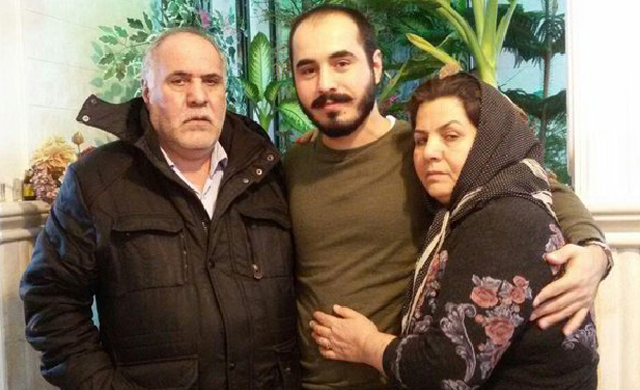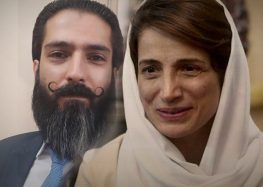In Bid to Save Ailing Son, Political Prisoner’s Father Threatens Hunger Strike

The father of ailing political prisoner Hossein Ronaghi Maleki will launch a hunger strike in front of the Tehran prosecutor’s office unless steps are taken to release his son.
“Hossein has been in prison for six years based on an illegal and unjust ruling,” Ahmad Ronaghi Maleki told the International Campaign for Human Rights in Iran. “I have written to the authorities many times requesting his release, especially considering his illnesses.”
“If he is not freed by the [Persian] New Year [starting March 20, 2016], I will go on hunger strike on March 26,” said Ahmad Ronaghi Maleki, adding: “I’m not asking for furlough for my son for the new year holidays. He has been in prison long enough. It’s really enough.”
“The officials have not replied to my numerous requests for his release. I have no other choice but to go on a hunger strike. I hope the officials will listen to me,” he told the Campaign.
Hossein Ronaghi Maleki, 30, was arrested on December 13, 2009 at his father’s home in Malekan, East Azerbaijan Province, and sentenced to 15 years in prison by Judge Yahya Pirabbasi for blogging comments critical of Iran’s 2009 presidential election.
The results of that election were widely disputed in Iran, and peaceful protesters were met with a violent state crackdown that left hundreds arrested and jailed.
Maleki was charged with “acting against national security” and “supporting and receiving money from foreign organizations.”
His 15-year prison sentence was upheld by the Appeals Court.
Maleki has been suffering from illnesses affecting his digestion, lungs and kidneys during the past six years he has spent in prison.
He has received two medical furloughs for urgent treatment. His second furlough, which began on September 4, 2014, required 1.4 billion tomans in bail (about $463,000 USD).
Maleki returned to prison on January 19, 2015 against the advice of his physicians.
Political prisoners in Iran are singled out for particularly harsh treatment, which often includes denial of medical care.
“On the morning of March 15 we had an MRI appointment to scan Hossein’s spinal cord. But they didn’t bring him out of prison,” Ahmad Ronaghi Maleki told the Campaign.
“When I asked, I learned that Evin Prison officials wanted to bring Hossein to the hospital in prison clothes but he objected,” he said.
“I’m really worried about my son’s condition,” added Ahmad Ronaghi Maleki. “Isn’t six years of torture and prison enough? He’ll never get well this way. Let him come out and recover by his family’s side.”
Following the recent prisoner swap between Iran and the United States, which resulted in the release of four detained Iranian-Americans, Ahmad Ronaghi Maleki asked why Iranian prisoners of conscience who don’t hold dual citizenship remained unjustly incarcerated.
“As a father I want my son to be free, too,” he told the Campaign in January 2016.
“All these years I have been running around shouting for my son’s freedom so that someone might hear me.”






